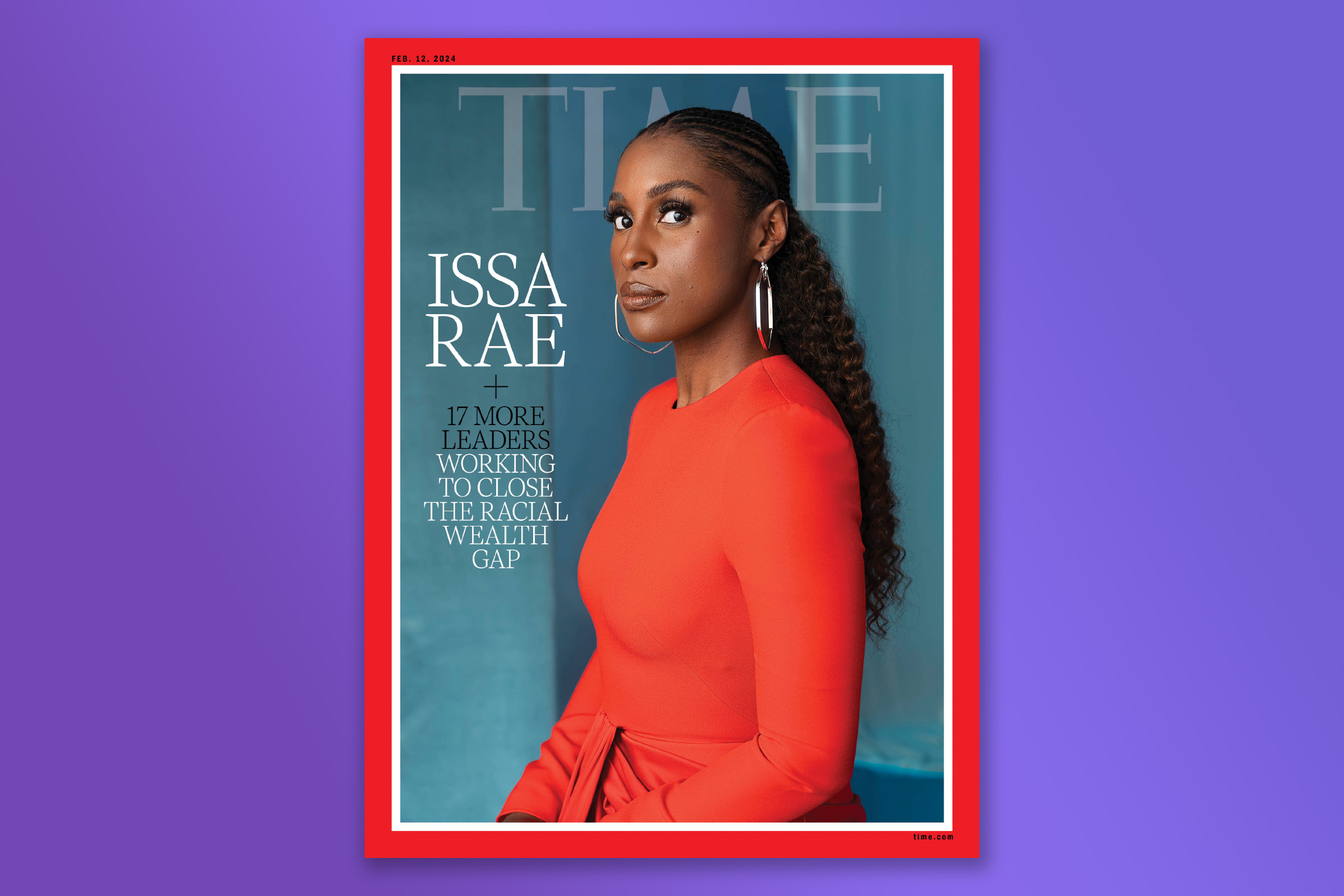A recent Federal Reserve report found that the median wealth of white households was about six times that of Black families in the U.S. in 2022. While the specific numbers have varied over the years, there is no denying that the racial wealth gap is vast and persistent.
“Oftentimes the frame is, ‘Oh, we’re not where we want to be, but we're getting there,’” Dedrick Asante-Muhammad, vice president of racial economic equity, research, and workforce development at the National Community Reinvestment Coalition, told TIME. “And for 20 years I have been trying to highlight, ‘No, we aren’t.’” That doesn’t mean, however, this disparity is a foregone conclusion or that people aren’t trying to draw attention to the issue and improve the situation.
Asante-Muhammad is one of 18 people TIME has selected for its new list of Closers, people who are spearheading efforts to close the racial wealth gap, particularly the substantial gulf between Black and white households. TIME editors spent months researching and fielding recommendations, from both editorial staff and the Black Innovation Alliance, our knowledge partner in this project, and the resulting list, published on Feb. 1 to kick off Black History Month, highlights Black leaders who are working toward this goal through business, policymaking, health care, entertainment, and more.
For the cover story, Issa Rae—who appeared in two movies just nominated for Best Picture, Barbie and American Fiction—spoke about working to improve living conditions in South L.A. while juggling her many creative and entrepreneurial ventures, all with a greater goal in mind. “I recognize that I have to do well economically to be able to make change,” she said. She also was candid about the challenges she has faced as the industry has cut costs and, in her view, pulled back from its promises to increase diversity and representation.
Joining her on the list is fashion designer Aurora James, founder of the label Brother Vellies; in 2020, she launched the Fifteen Percent Pledge to encourage retailers to devote at least 15% of their shelf space to Black-owned businesses. She has since secured commitment from 29 companies around the world to collectively stock more than 600 Black-owned brands on their shelves, redirecting $14 billion in revenue to Black-owned businesses in the process.
In the sports world, thanks in large part to the efforts of National College Players Association executive director Ramogi Huma, athletes can now earn money by capitalizing on their Name, Image, and Likeness rights rather than just generating revenue for their schools. “He’s the conscience of the movement,” says Sen. Cory Booker, who is also featured on the list for his work to bring investment to undercapitalized Black and brown neighborhoods. Booker has long advocated for ideas and initiatives aimed at closing the racial wealth gap, including championing the baby bond, the brainchild of fellow Closers Darrick Hamilton and William Darity.
While history, economics, and demographics mean the racial wealth gap is not the same around the world, it is also by no means an issue exclusively in the U.S. Through her PretaHub platform, Adriana Barbosa is building a more equitable market for Afro Diaspora entrepreneurs in Brazil and beyond. In the U.K., Rebecca Ajulu-Bushell leads the 10,000 Interns Foundation, which has created 5,000 internships for Black or disabled students and graduates at over 700 companies in just three years.
The work is ongoing, but as Huma said reflecting on his decades-long fight, “If you feel like you’re on the right side of history, just don’t give up.”
- Inside Elon Musk’s War on Washington
- Meet the 2025 Women of the Year
- The Harsh Truth About Disability Inclusion
- Why Do More Young Adults Have Cancer?
- Colman Domingo Leads With Radical Love
- How to Get Better at Doing Things Alone
- Cecily Strong on Goober the Clown
- Column: The Rise of America’s Broligarchy


